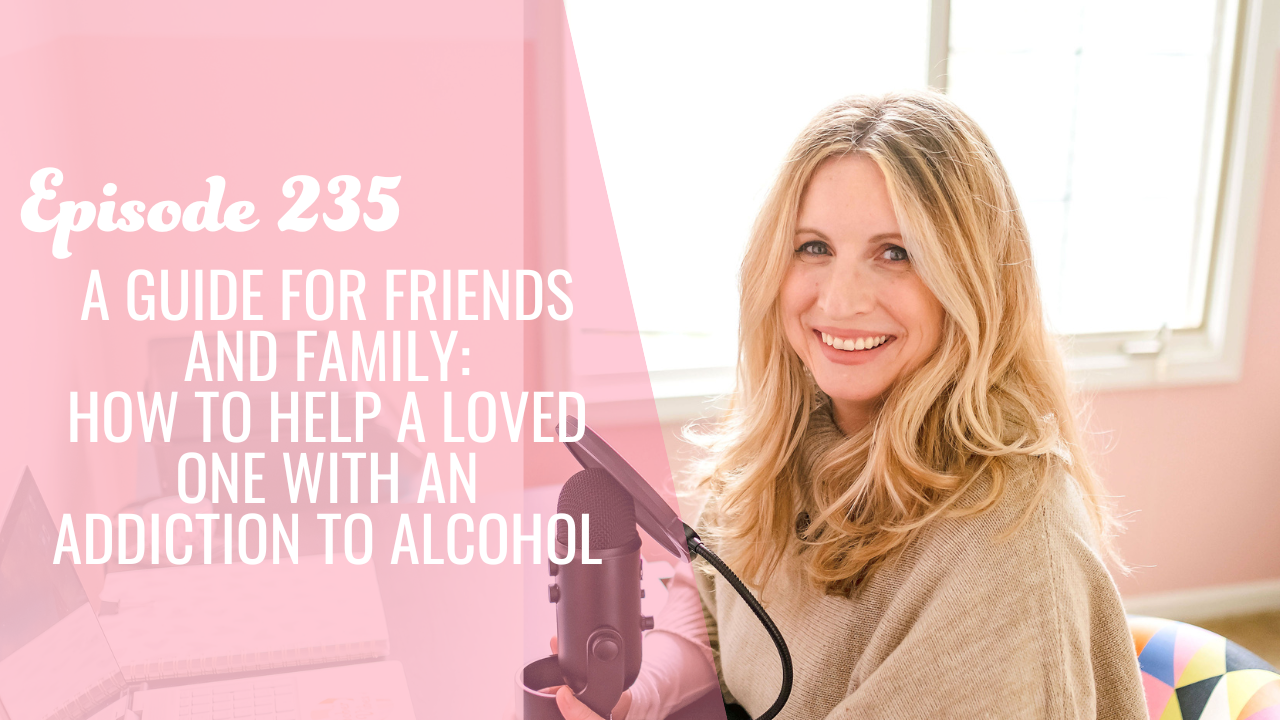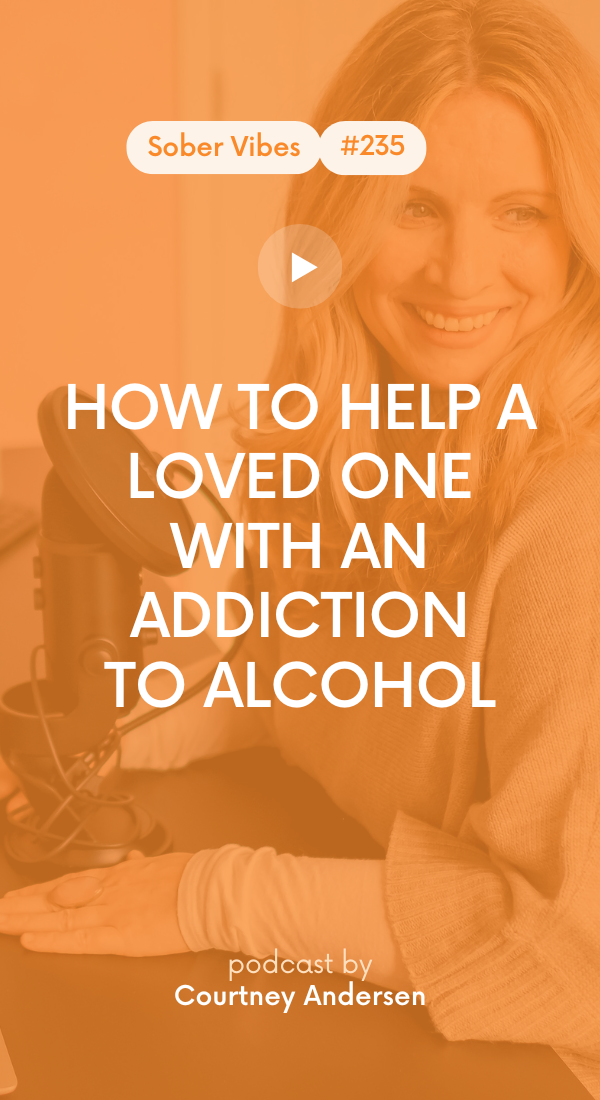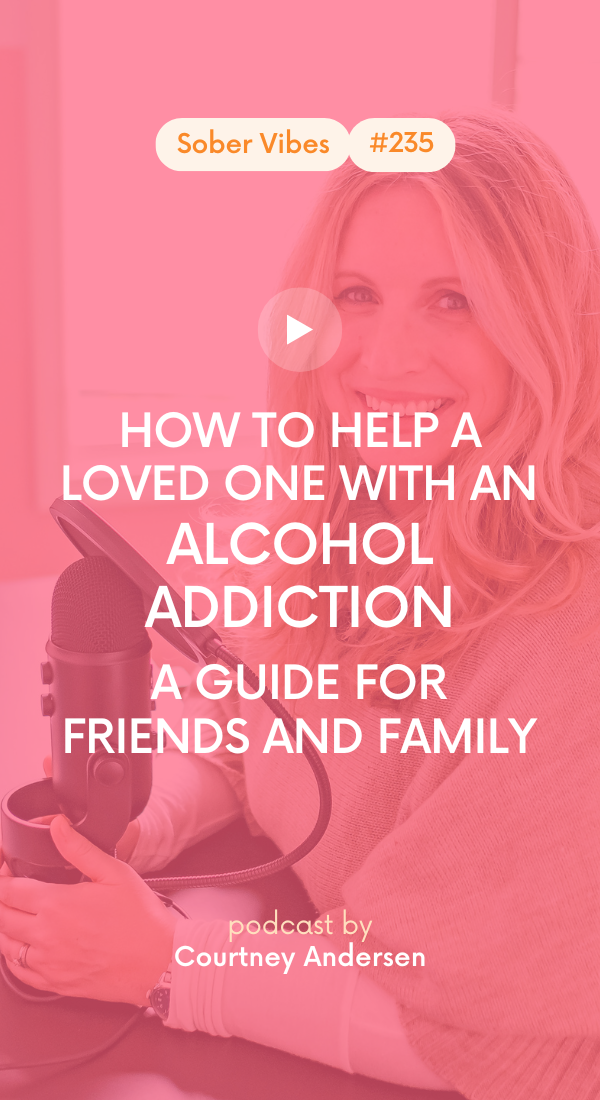A guide for Friends and Family: How to help a loved one with an addiction to Alcohol
Aug 26, 2025
Episode 235: A guide for Friends and Family: How to help a loved one with an addiction to Alcohol
Spotify | Apple Podcast | Website
"Your job isn’t to save them, it’s to support."
Here’s a glance at this episode...
If you’re here, you probably love someone who’s struggling with alcohol. Maybe you’re a spouse, a parent, a sibling, or a close friend. And let me just say, you’re not alone. Loving someone with a drinking problem is exhausting, confusing, and, honestly, it can break your heart a little. I know, because I’ve been on both sides of this. I’ve been the person with the problem, and I’ve been the loved one watching someone self-destruct. Both sides are hard, but today is about you, the one standing by.
What you will learn in this episode:
- Addiction impacts everyone around the person, not just the drinker
- Changed behavior is the real apology, not just words
- Early sobriety is emotional, non-linear, and sometimes distant
- Loved ones need boundaries, self-care, and realistic expectations
- Support is valuable, but the work must come from the person in recovery
Addiction Touches Everyone
Here’s the truth: this isn’t just their problem.
Addiction shakes up the whole household, every relationship, and the entire dynamic. And while it can feel personal, like they’re choosing alcohol over you, most of the time it’s about something deeper: pain, trauma, shame. Alcohol becomes their coping tool, even if it’s destroying everything else.
That doesn’t excuse bad behavior, but it does mean you can stop blaming yourself. You didn’t cause this, and you can’t cure it, but you can choose how to protect your own peace while still caring about them.
The Truth About Changed Behavior
If you take one thing away from this, let it be this: the best apology is changed behavior.
Words mean very little without action. Over time, you’ll be able to see whether they’re actually putting in the work.
This doesn’t mean you need them to be perfect right away. Progress is progress. When you notice even small shifts, acknowledge them. It’s those changes, not just the “I’m sorrys,” that will start to rebuild trust.
5 Things to Expect When They Begin Sobriety
- Early sobriety is emotional and raw
Quitting drinking doesn’t just mean not drinking. It means all those feelings they’ve been numbing come rushing to the surface. Expect mood swings, tears, maybe even some anger. It’s not pretty, but it’s normal. Try not to take it personally, they’re relearning how to feel everything without numbing it. - Sobriety isn’t linear
Slips happen. Relapses happen. That doesn’t mean they don’t care about getting sober. It means recovery is hard, and society makes it harder with alcohol everywhere you look. The key is to remember that progress can include setbacks. - They may pull away
Sometimes they need space to figure out who they are without alcohol. If they get quiet, it’s not necessarily rejection. It’s part of healing. - Heavy truths may come out
Sobriety can bring confessions, apologies, and stories you didn’t know. It might be uncomfortable, but it’s often a sign of real healing. - Your support matters, but it’s not everything
You can be the most loving, encouraging person in the world, but they have to want this for themselves. You can’t do the work for them.
5 Ways to Care for Yourself While Supporting Them
- Learn about addiction
The more you understand alcohol use disorder, the less power it has to confuse and hurt you. Read, listen, ask questions. Knowledge will help you see it’s not about you. - Set boundaries without guilt
Boundaries aren’t punishment, they’re protection. Decide what you will and won’t tolerate, and stick to it. - Take care of your own well-being
Therapy, support groups, alone time, hobbies whatever keeps you grounded. You can’t pour from an empty cup. - Let go of control
You can’t control their recovery. You can’t nag or guilt someone into sobriety. Support them, but know when to step back. - Celebrate progress, not perfection
Acknowledge their effort, even if it’s just making it through one more sober day. Small wins matter.
The Hard Truth (and the Hope)
Not everyone makes it, and that’s a tough reality. But many do, and hope is worth holding onto. The key is to balance compassion with protecting your own well-being. You get to decide what you can and can’t live with, and that doesn’t make you heartless, it makes you healthy.
Conclusion: Loving Without Losing Yourself
You didn’t cause this. You can’t cure it. And you can’t control it. What you can do is choose love, boundaries, and self-respect. Support them if you can, but protect yourself no matter what. Your life matters just as much as theirs, and you deserve peace in it.

Thank you for listening!
If this episode has helped you, please consider rating and reviewing the podcast. (Five Stars is awesome!)
This helps me continue to make episodes for you.
★★★★★
Please Rate, Review and Subscribe to the Sober Vibes Podcast.
PODCAST SPONSOR:
This episode is sponsored by Soberlink, a trusted accountability tool for anyone navigating early recovery. Whether you're rebuilding trust with loved ones or simply want more structure in your sobriety, Soberlink offers a discreet and empowering way to stay on track.
Sober Vibes listeners get $50 off their device!
Grab your discount here!
Resources Mentioned:
Hope this episode helps you today!
I want you to feel sober NOT boring!
Kickstart your sobriety with my free 2-day video workshop series to master your sober mindset and have FUN in your sobriety journey!









